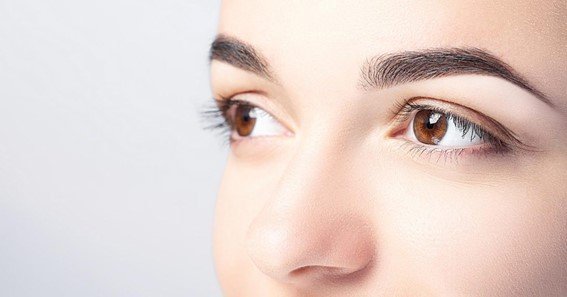Eyesight and eye health tend to worsen with age, so it’s important not to take your eyes for granted. Getting check-ups every so often is necessary to maintain good eyes. So is avoiding smoking. Contrary to popular opinion, however, you don’t need to worry too much about reading in poor light. It’s a myth that doing so will harm your eyesight.
Other myths:
- Using your eyes too much or wearing glasses with the wrong prescription will wear them out
- Crossing your eyes will make them stuck that way
- 20/20 vision = perfect vision
- Sitting too close to the TV damages your eyes
- Wearing prescription glasses or contact lenses makes your eyes dependent on them
- Eye exercises improve your vision
click here – Brow Lamination: Should You Do It?
Yet another myth is that your eyesight inevitably worsens with age. As mentioned above, that often happens, but it’s not inevitable. On the contrary, there are things you can do to increase the chances of maintaining good eyesight after moving into a retirement residence or enjoying your retirement in other ways. Here are three.
#1 Eat Nutritious Foods
Certain foods contain antioxidants that help keep the eyes healthy and prevent macular degeneration. These foods are high in vitamins A, C, and E. Foods that are high in vitamin A include
- Cod liver oil
- Beef liver
- Broccoli
- Sweet potato
- Carrots
- Black-eyed peas
- Spinach
- Sweet red paper
Foods that are high in vitamin C:
- Oranges
- Strawberries
- Kale
- Broccoli
- Brussel sprouts
- Parsley
Foods that are high in vitamin E:
- Almonds
- Red bell pepper
- Peanuts
- Sunflower seeds and oil
- Wheat germ oil
- Avocado
- Asparagus
- Mango
Zinc is also essential to eye health. Most vegetables and fruits don’t contain high amounts of zinc. Foods that do are:
- Shellfish
- Dark chocolate
- Legumes (chickpeas, lentils, etc.)
- Red meat
- Milk
- Eggs
- Seeds
click here – Super device
#2 Be Careful About Screen Time
Young people spend lots of time on their screens. In February of 2020, the American Academy of Child & Adolescent Psychiatry reported that, in the United States, teens spend up to 9 hours a day watching or using screens, while children ages 8-12 spend 4-6 hours per day. During the pandemic, those numbers increased.
But it’s not only young people who spend a lot of time on screens. Adults do too. This includes adults who choose to look at screens in their free time, as well as adults who need to look at screens at work.
Screen time can cause:
- Eyestrain
- Trouble focusing at a distance
To prevent eye strain and trouble focusing at a distance, you can:
- Rest your eyes every 20 minutes by looking 20 feet away for 20 seconds
- Keep your eye prescription up to date
#3 Wear Sunglasses
Sunscreen protects your skin, and sunglasses protect your eyes. Specifically, they protect your eyes from the sun’s ultraviolet (UV) rays, which can lead to cataracts and macular degeneration.
When shopping for sunglasses, narrow down your choices to ones that block 99.9% of UVA and UVB rays. Note that not all costly sunglasses, including designer sunglasses, block UVA and UVB waves.
The Bottom Line
Your eyes are your friend, but only if you treat them like one. So, be sure to get an eye exam every year or so and do what you can on your own to maintain or improve your eyesight. Your future, retired self will thank you.

